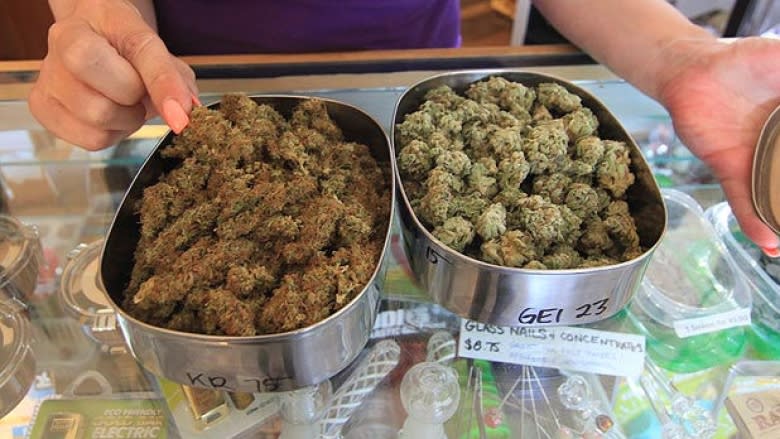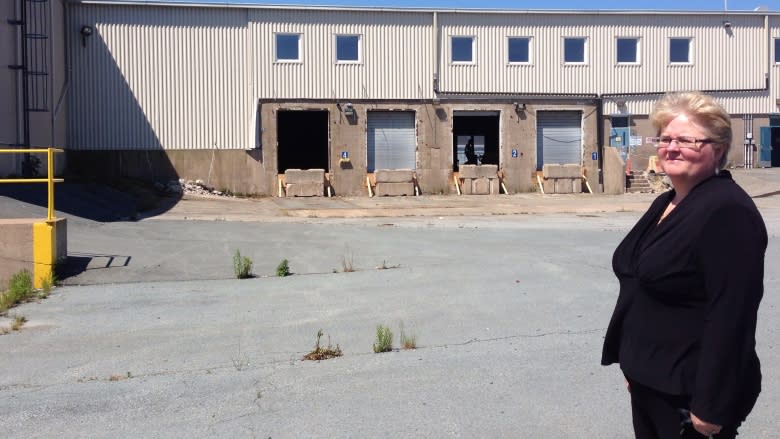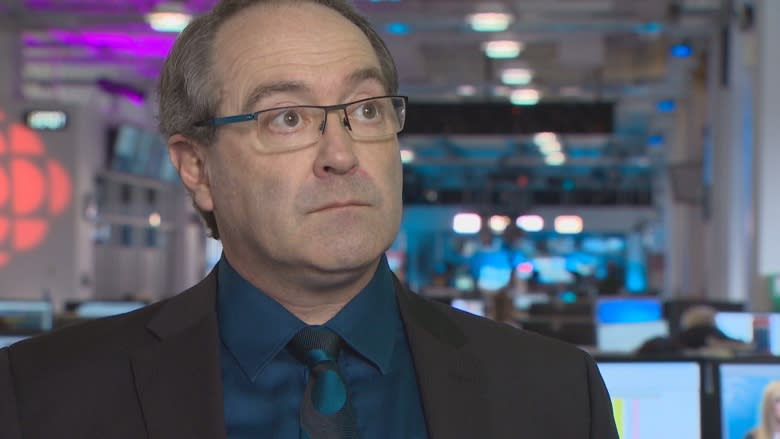Nova Scotians divided on province's plan to sell pot through NSLC
The provincial government's plan to sell marijuana through Nova Scotia Liquor Corporation stores is drawing mixed reaction from industry, health professionals and marijuana users.
Bill Sanford, the CEO of the province's first licensed marijuana producer, Breathing Green, was pleased to hear Justice Minister Mark Furey say the province wants to sell local product.
"I feel pretty good about that, obviously," said Sanford.
Breathing Green has a 35,000-square-foot facility in the Wentworth Valley. It has a licence to grow the plant, and expects to be licensed to sell within six to 12 months.
"Being a homegrown Nova Scotia company, that certainly sounds very supportive of what we are trying to do. Because we are looking to build a successful top operating company," he said.
The CEO of Aqualitas, a Liverpool company that is hoping to reach the licensed-to-grow stage by January, also welcomed the news.
"It's a very good economic development opportunity for the province," said Myrna Gillis. "The fact that there's a new industry and a new opportunity to renew particularly rural economic development, I think it's a really good decision for the government to support local producers."
The government announcement did not state a price for cannabis.
Gillis said producers across Canada generally have production costs between $1 and $4 per gram, which leads her to believe the price would be between $8 and $12. She explained that price would have to strike a balance between being profitable and staying below the illicit market.
Price could be a problem
Gillis also said she welcomes the NSLC model but would be open to changes.
"I think that if over time expanding it to other retail models may be appropriate, but I think everybody wants to take small steps," she said.
Carman Pirie owns a marketing company in Halifax and also has a medical marijuana licence.
"I am prescribed cannabis for sciatica, and it certainly is effective for that, but I also certainly enjoy it recreationally as well," he said.
Pirie disagrees with the choice to sell pot in the NSLC.
He said the model for marijuana should have been closer to how alcohol can be sold by craft breweries and in bars, and believes that would have stimulated a "craft cannabis production" economy.
Pirie doubts that recreational users will choose to go to the NSLC because of concerns about quality, and because the price may be higher than on the black market.
"They don't know the product. It's just another SKU [stock keeping unit] for them. And I think that's a big problem, and I don't think recreational users will be encouraged to migrate to the NSLC as a result," he said.
"I think as the price creeps over $10 a gram it begins to get difficult. It feels to me that the $15 a gram barrier is going to be significant for a lot of people."
Pirie says for public health reasons, alcohol and marijuana should have been kept separate.
People more likely to try pot?
Todd Leader agrees there should have been stand-alone stores, but disagrees they should have been run by private industry.
Leader, who is a social worker and the president of the Association of Psychologists of Nova Scotia, says he's disappointed with the new policies for several reasons.
Leader says putting marijuana in NSLC locations means people who don't currently use cannabis will be exposed to cannabis marketing and will be more likely to try it, potentially increasing the population of recreational users.
He wanted to see stand-alone, government-run marijuana shops, which he says would have decreased the likelihood of people using both substances together.
"The mixing of anything, particularly alcohol, is always problematic and risky from a health perspective," he said.
Leader also says the legal age of use should have been older than 19 because of medical evidence about the effects of THC — the principal psychoactive ingredient in marijuana — on adolescent brains.
"This province went the easy route, the same as most of them are, and aligned it with alcohol for its own convenience. So it serves the system, not the public."
Although he said there's increasing evidence of how cannabis can be used medically, Leader also believes it's too early to speculate on how economic benefits such as job creation will stack up against health problems caused by recreational use.





